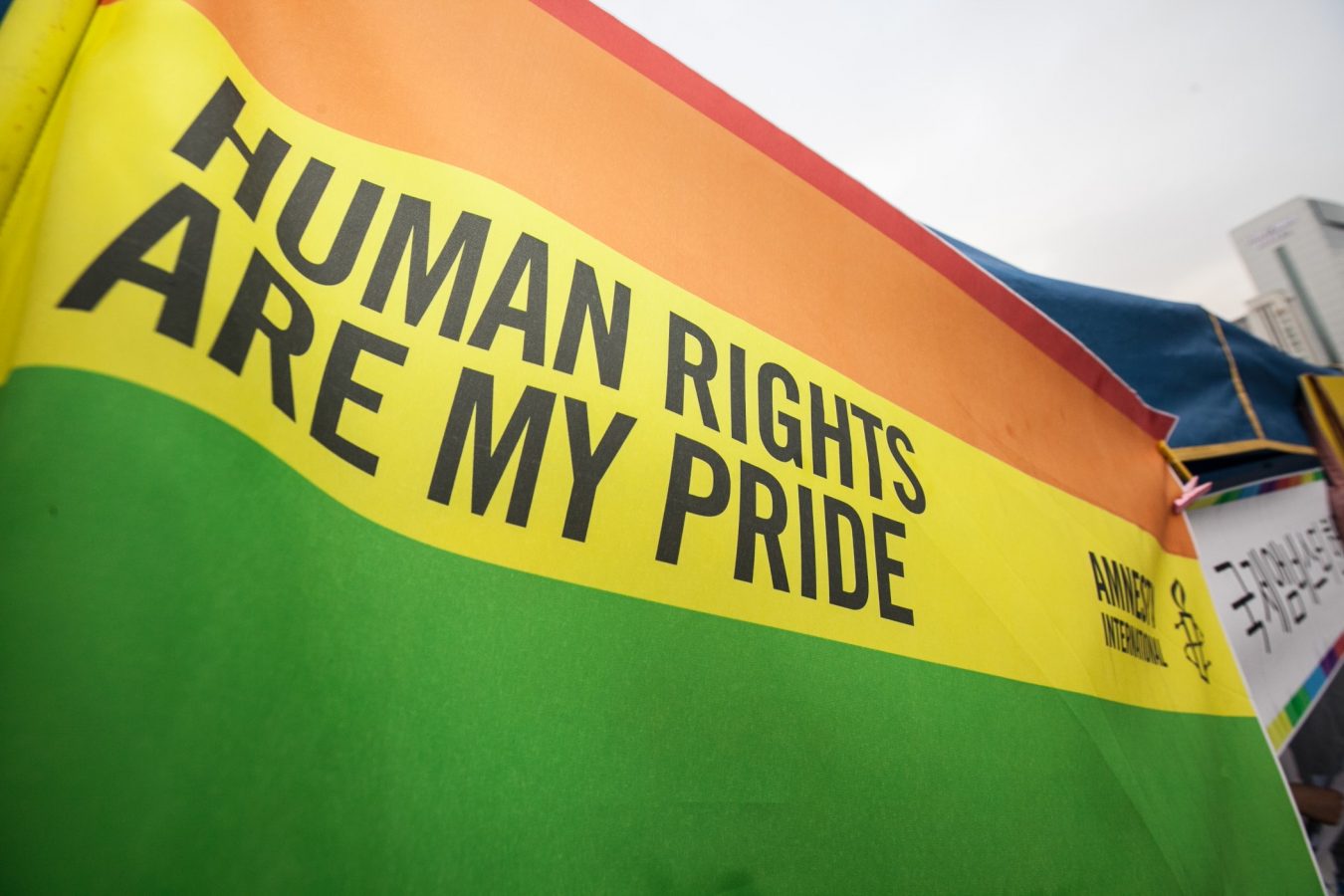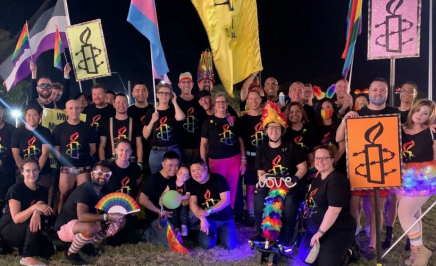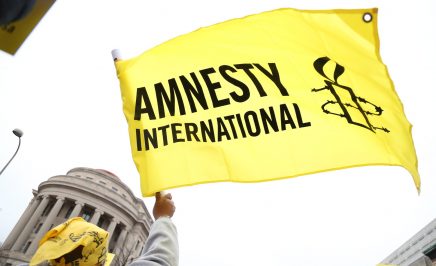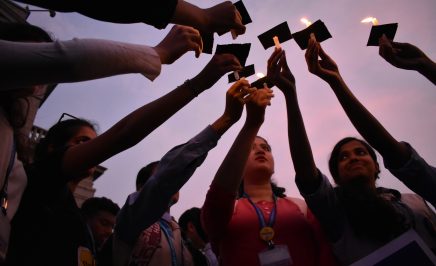Responding to the introduction of a bill that seeks to forbid discrimination across South Korean society, including on grounds of sexual orientation and gender identity, Suki Chung, East Asia Campaigner at Amnesty International, said:
“The introduction of this anti-discrimination bill, combined with existing draft laws on the matter, represents a historic opportunity for South Korea to finally broadcast to the world that violations of the right to equality will no longer be tolerated anywhere in society.
“By passing this legislation, South Korea can outlaw discrimination in all its forms, including against lesbian, gay, bisexual, transgender and intersex people, who have suffered historic and systemic discrimination in the country.
“During military service, LGBTI people suffer stigmatization, harassment, violence and criminalization, while marriage and other legally recognized partnerships continue to be denied to same-sex couples across the country.
“In recent years, South Korea has made great advances in the protection of human rights, yet continues to let down its LGBTI communities and other disadvantaged groups. The National Assembly must finally seize the chance to pass this landmark law and set things right.
“We urge legislators to pass a comprehensive law that fulfils South Korea’s international human rights obligations to protect all people from discrimination, allowing the country to serve as a leading light on equality in the region.”
Background
Ruling Democratic Party of Korea legislator Park Joo-min introduced a bill on anti-discrimination to South Korea’s National Assembly today, meaning there are now multiple bills on this matter currently under discussion in parliament. If agreed, the bills will be consolidated into a draft law that would be passed as a general anti-discrimination act that covers all areas of South Korean society, including LGBTI people.
Amnesty International welcomes the introduction of this bill and calls on legislators to ensure the law is truly comprehensive, meaningful and enforceable. Discrimination based on race, ethnicity, nationality, language, class, religion, belief, sex, gender, sexual orientation, gender identity, sex characteristics, marital or other family status, age, health or disability or other status must be outlawed. Furthermore, authorities must establish a mechanism for complaints and an effective redress system for victims of discrimination.
The National Assembly has failed to adopt numerous bills that have been proposed over the last 14 years, including recommendations by the government and the National Human Rights Commission of Korea. This is the tenth time draft legislation on anti-discrimination has been submitted to South Korea’s National Assembly since 2007.
Over a year ago, on 29 June 2020, the Justice Party collaborated with other lawmakers to propose an anti-discrimination bill, yet failed to gain majority support in the National Assembly. In past attempts, the inclusion of provisions outlawing LGBTI discrimination proved especially contentious.
The South Korean Constitution prohibits discrimination, as do international human rights treaties that South Korea has ratified. Yet discrimination, especially against LGBTI people in South Korea, continues to exist in various forms, some of which are institutionalized.
Consensual same-sex activity between adults continues to be criminalized in the military, even though it is not outlawed for the general public. Almost all men undergo military service, spending at least 18 months in an environment where stigmatization or even violence against LGBTI people is institutionalized. Article 92-6 of the nation’s Military Penal Code labels sexual activity between members of the same sex as “sexual harassment”. Anyone caught breaking this law could face up to two years in prison.
The Covid-19 pandemic has also shed further light on prevailing prejudices against LGBTI people in South Korea. Instances of LGBTI people known to have tested positive for the virus resulted in the media and members of the public making discriminatory and unfounded links between the spread of Covid-19 and sexual orientation or gender identity.
Under international human rights law and standards, governments have a responsibility to respect and protect LGBTI people. This includes the adoption of policies and laws preventing discrimination against them.
The submission of an anti-discrimination bill in South Korea builds on momentum for such legislation in other countries in Asia. A comprehensive anti-discrimination bill is under consideration in the Philippines, while a bill focusing specifically on discrimination against LGBTI people is being discussed in Japan. Meanwhile, Taiwan legalized same-sex marriage in 2019 and Thailand passed the Gender Equality Act in 2015.





